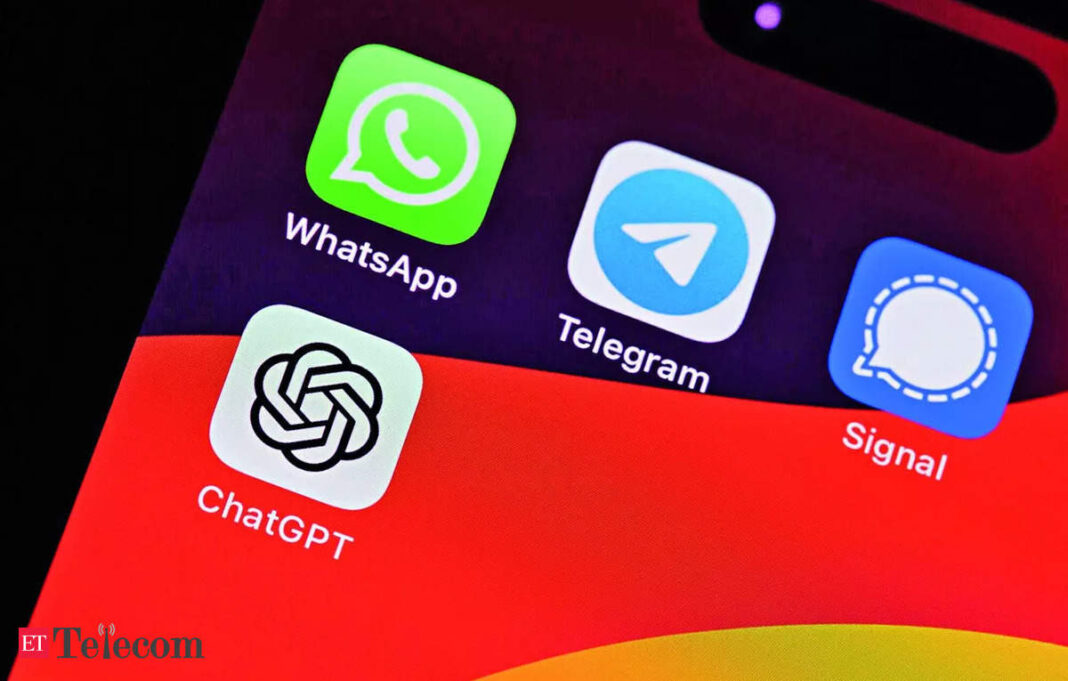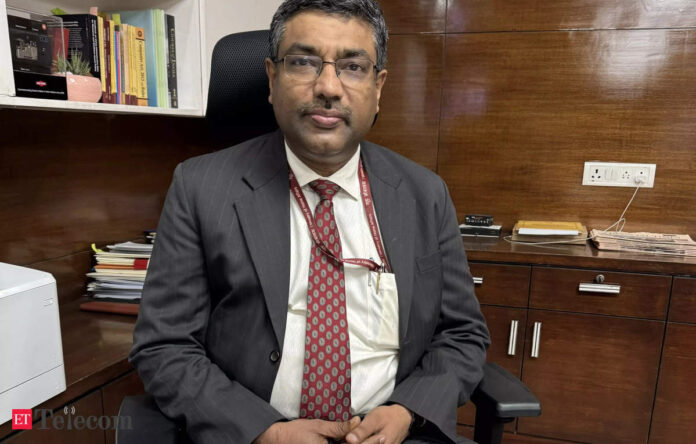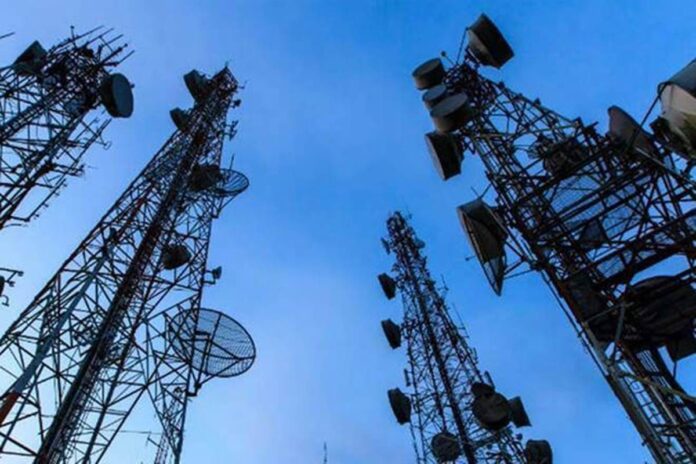In Short:
The Department of Telecommunications (DoT) in India has clarified that it does not plan to regulate over-the-top (OTT) communication services like WhatsApp and Telegram. Telecom companies are pushing for regulation, arguing that these apps should follow the same rules as telecom operators. However, the DoT maintains that the definitions in the new Telecommunications Act do not apply to OTT services and that they are already subject to the Information Technology Act. Future clarity will come once the Telecom Regulatory Authority of India (Trai) makes recommendations. App developers argue against being treated like telecom operators, claiming it violates the Constitution.
DoT Opts Not to Regulate OTT Communication Services like WhatsApp and Telegram
New Delhi: In a significant development, the Department of Telecommunications (DoT) has made it clear that it won’t be regulating over-the-top (OTT) communication platforms, including popular apps like WhatsApp and Telegram. In a conversation with the Economic Times (ET), officials emphasized that the definition of telecommunications under the recently passed Act does not encompass such applications.
Clarification Amid Telecom Companies’ Push
This announcement arrives at a time when telecom companies are ramping up their efforts to compel authorities to extend regulations to communication apps. They advocate for a “same-service, same-rule” principle, believing that these apps should be subject to the same regulations as traditional telecom services. However, OTT players argue that they are already governed by the Information Technology Act.
An official explained, “The interpretation of the definition isn’t straightforward, which is leading to varied understandings among stakeholders. After all the rules under the Act are in place, clarity will emerge.” Yet, DoT remains firm in its stance — they have no intentions of regulating OTT players.
The Telecommunications Act, 2023
In the case of OTT services, messages are sent through data packets. “The switching occurs for these packets, for which customers already pay. The service is essentially provided by the telecommunications companies by managing their data packets,” another official clarified.
A Broader Aim to Regulate Licensed Telecom Operators
The new Act indeed expands the definition of telecommunications, but officials assert it primarily aims to regulate licensed telecom operators. On security grounds, the government is considering how these apps might be regulated and possibly under which legislative framework. “The Ministry of Electronics and IT will decide whether these apps will be regulated under the Digital India Act or another piece of legislation,” mentioned the first official.
COAI’s Take on OTT Communication Services
In a recent submission to the Telecom Regulatory Authority of India (Trai), the Cellular Operators Association of India (COAI), which represents private telecom operators in the country, argued that OTT communication services fall “within the ambit of the new Telecom Act as an access service.”
DoT officials maintained that clearer insights into these issues will come once Trai delivers its recommendations on whether communication OTTs should be regulated.
Trai’s Consultation and Upcoming Recommendations
Last year, Trai launched a consultation paper exploring regulatory mechanisms for OTT communication services and the potential for selective bans. This reconsideration arose after DoT requested Trai to review its 2020 suggestions, which had initially stated that OTT services should not be regulated. Trai Chairman Anil Kumar Lahoti remarked, “We will provide recommendations. The matter of which Act it pertains to and which ministry or regulator manages it is a different issue.”
Telecom Operators’ Revenue Concerns
In their response to Trai’s consultation paper, COAI reiterated that OTT services should fall under a licensing framework. Telecom operators have ramped up their call for a share of revenues generated by OTT platforms, arguing that the rapid growth of these services and their unregulated nature are giving rise to security concerns and creating an uneven playing field for “regulated and law-abiding service providers.”
App Makers Stand Their Ground
On the other hand, app developers argue that their services are not comparable to those offered by telecom companies and therefore shouldn’t be regulated in the same manner. The Broadband India Forum (BIF), representing tech firms and app developers, stated that placing OTT services under the Telecom Act would violate Article 14 of the Constitution, which guarantees equal treatment to similarly situated persons or entities. They emphasized that treating OTT services and telecom services as equals neglects the crucial differences between these two categories.
BIF President TV Ramachandran criticized the telecom operators’ proposals, claiming they mislead their customers and attempt to impose unfair financial burdens on other sectors while concealing their own inefficiencies. “Allowing these moves could harm consumers, stifle competition, and impede the growth of the digital ecosystem in India,” he asserted.





